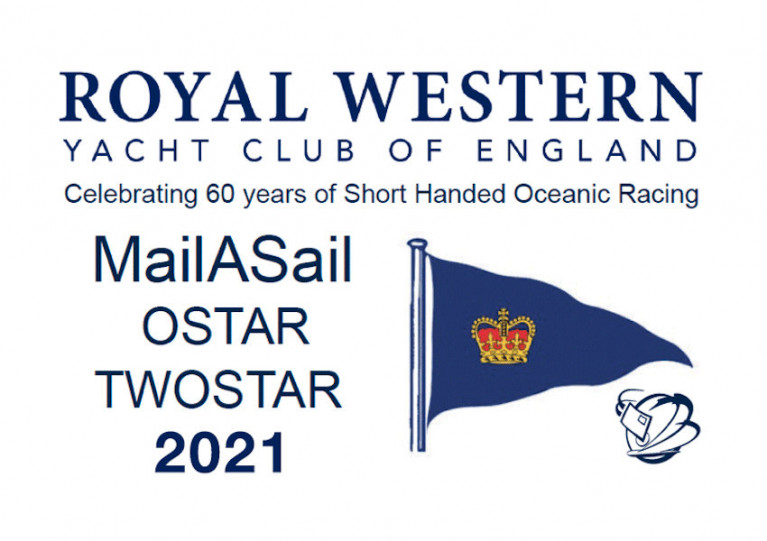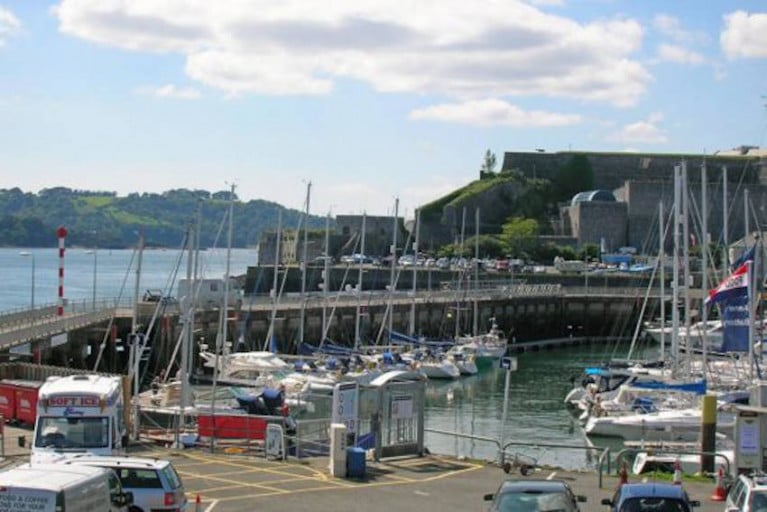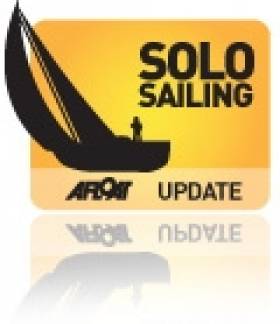Displaying items by tag: RWYC
2021 OSTAR & TWOSTAR Races Still Going Ahead as Planned
This year’s OSTAR and TWOSTAR races are going ahead as planned, the Royal Western Yacht Club of England has confirmed.
Organisers say that after consultation with finishing hosts Newport Yacht Club in Rhode Island, they are “confident that we can provide a COVID-safe start and finish to the race”.
Last year’s event was postponed amid the first weeks of the coronavirus pandemic, with a new start date set for 9 May 2021.
RWYC Commodore Chris Arscott commented: “The OSTAR has been a breeding ground for some of the world’s best known and most successful sailors including Sir Francis Chichester, Eric Tabarly and Loick Peyron.
“In 2007 the race returned to its Corinthian roots and has continued to offer the stars of the future a springboard as the toughest amateur/semi-pro solo races there is. This year will be no different with what is already a strong list of entries.”
Many of these entries will use the 60th OSTAR as their qualifying passage and training for the Global Solo Challenge, a non-stop round-the-world event set for 2023.
The RWYC adds that provision has been made in the Notice of Race “to ensure that COVID does not cost our competitors financially”.
Entry is still open for the MailASail OSTAR and TWOSAR 2021 but prospective competitors are asked to contact the RWYC at [email protected] as soon as possible. A completed entry form with deposit is required to secure entry.
There is a potential delay allowance window of three weeks should this be required based on COVID restrictions. Should the race need to have an extended postponement at short notice due to COVID, then full refunds will be offered.
OSTAR & TWOSTAR Races Postponed To 2021 Over Covid-19 Concerns
Yachting Monthly is reporting that organisers of the OSTAR and TWOSTAR transatlantic races have postponed this year’s events until 2021 due to the Covid-19 pandemic.
The single-handed and two-handed fleets had been scheduled to set sail from Plymouth on Sunday 10 May in what is their 60th anniversary year, hosted by the city’s Royal Western Yacht Club.
In a statement issued on Monday afternoon (16 March), the RWYC said it aims to run the events “over a similar period in 2021”.
It added: “Since this will require compliance to the latest edition of Word Sailing OSRs for Cat 1 yachts, there will be a new Notice of Race, which will be issued in due course.”
Updated Wednesday 18 March to include details of the RWYC's official statement.
Solo Sailing Conference Offers Charter of Performance Yachts
Irish solo sailing fans may be interested in the annual Solo Racing Festival at the Royal Southern Yacht Club, Hamble on Saturday 12th March.
Given the Figaro race is coming to Dun Laoghaire in August a talk on the Artemis Academy with John Thorn (Figaro 2) will be of particular interest.
Owen Clarke's designer Merfyn Owen, who lives in Hamble will be attending as well as colleagues from their brokerage partners Boatshed Performance.
So whether your interest be solo sailing or short-handed sailing in general they will be there to answer questions on design, construction, as well as sale/purchase and charter of offshore performance yachts.
The Race Fair is an open house from 10.00 for race organisers to meet and greet potential skippers from; Global Ocean/Class 40, Mocra, UK mini group, RORC, SORC, Biscay Challenge, AZAB. Floating boat show, 8 boats including the OC class 40, 2 minis, A35, J105, Figaro 2, Sunfast 3200.
There is a Book Signing, Alex Bennett signing copies of High Seas High Stakes and showing Fuji DVD Mike Golding is opening the talks at 11,00.
Followed by:
Winning Mind Set with Ian Brown, sports psychologist
Global Ocean race with Oliver Dewar
Two Star/Ostar with John Lewis, RWYC
30m trimaran design with Nigel Irens (Idec, Sodebo)
Artemis Academy first term report with John Thorn (Figaro 2)
Route du Rhum with Marco Nannini, (class 40)
all in the spendid riverside setting of the Royal Southern Yacht Club, Hamble.
More HERE.































































